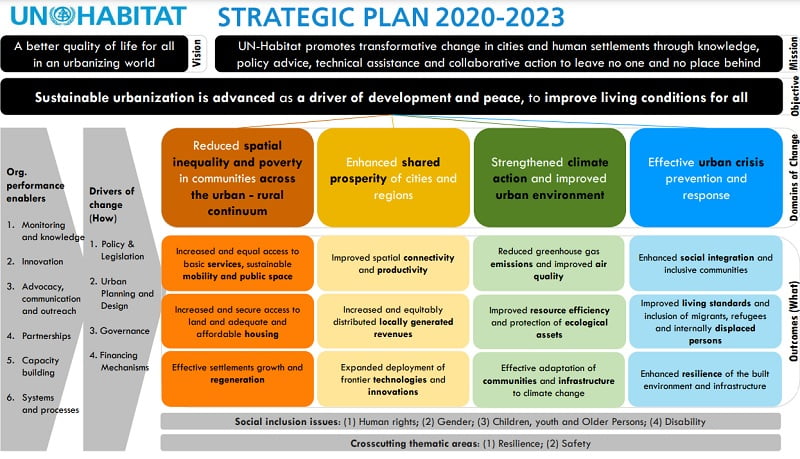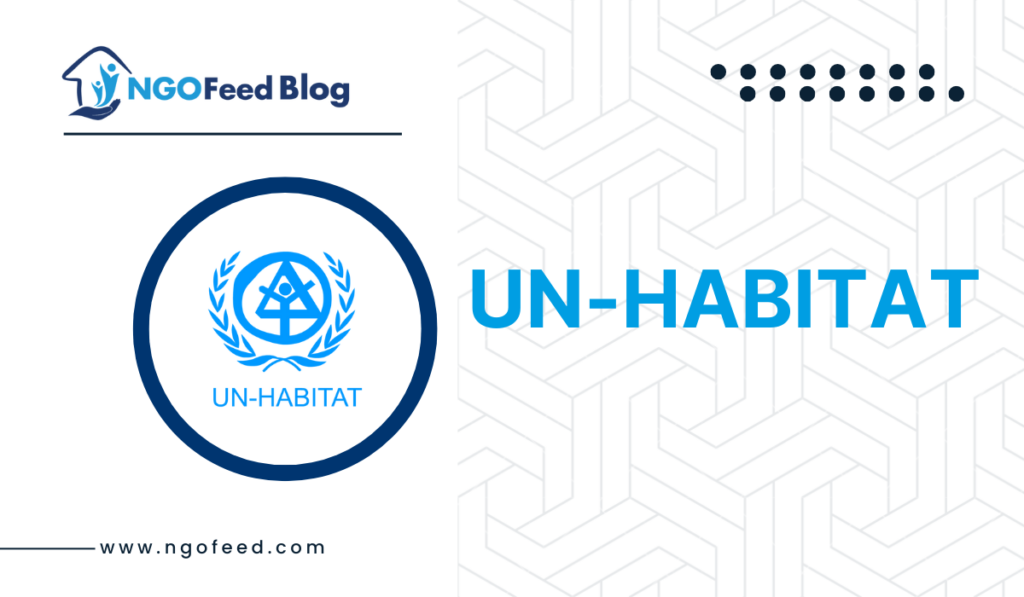UN-Habitat Full Form: UN-Habitat headquarters at the United Nations Office in Nairobi, Kenya. UN-Habitat’s full form is United Nations Human Settlements Programme, the United Nations programme for human settlements and sustainable urban development. UN-Habitat was founded in 1978 due to the first United Nations Conference on Human Settlements and Sustainable Urban Development (Habitat I) held in Vancouver, Canada, in 1976. It is mandated by the United Nations General Assembly to support socially and environmentally sustainable towns and cities to give adequate shelter for all.
UN-Habitat runs in over 90 countries to promote transformative development in cities and human settlements through knowledge, policy advice, technical support and collaborative action. UN-Habitat is currently working with staff of 400 crores and up to 2,000 projects. Throughout this article, you will get information about the UN-Habitat, such as its history, area of work, scope, publication, function etc.
| Index 1 UN-Habitat Overview 2 UN-Habitat Work and projects 3 UN-Habitat Strategic Plan 2020-2023 4 Frequently Asked Questions (FAQs) |
UN-Habitat Overview
Here in this section, we are providing a short overview of UN-Habitat (United Nations Human Settlements Programme). Let’s have a look.
| UN-Habitat | United Nations Human Settlements Programme |
| Headquarters | Nairobi, Kenya |
| Formation | 1978 |
| Parent organization | United Nations |
| Type | Programme |
| Status | Active |
| Head | Maimunah Mohd Sharif |
| Website | https://unhabitat.org/ |
| Official languages | more than 30 languages |
Read also:
UN-Habitat Work and projects
UN-Habitat works in more than 70 countries on five continents concentrating on seven areas:
| Urban Legislation, Land and Governance | Urban Planning and Design |
| Urban Economy | Urban Basic Services |
| Housing and Slum Upgrading | Risk Reduction and Rehabilitation |
| Urban Research and Capacity Development | – |
UN-Habitat Strategic Plan 2020-2023

Source: unhabitat.org
UN-Habitat Funding
- UN-Habitat relies heavily on voluntary contributions from governmental and intergovernmental donors for funding.
- Part of its regular budget comes from allocations approved by the UN General Assembly.
- General purpose contributions are non-earmarked voluntary donations from governments to support core funding and work program implementation.
- Special contributions are earmarked donations from governments and other donors for specific activities consistent with UN-Habitat’s mandate.
- Technical cooperation contributions consist of earmarked resources from governments and other donors for country-level activities implementation.
Conclusion
The United Nations Human Settlements Programme, or UN-Habitat, is very important for making sure that everyone has a safe place to live and for cities to grow in a way that is viable. UN-Habitat works in over 90 countries and has its main office in Nairobi, Kenya. Its main areas of interest are urban planning, housing, and lowering risks. Governments and donors give money to support its work voluntarily. This lets people work together to solve the complicated problems that come with urbanisation and make life better in cities and human areas around the world.
Frequently Asked Questions (FAQs)
What is the full form of UN-Habitat
The full form of the United Nations Human Settlements Programme.
Who is the head of UN-Habitat?
Maimunah Mohd Sharif
When and where UN-Habitat was established?
UN-Habitat was established in 1978.
Does UN-Habitat pay interns?
The UN-Habitat internship is unpaid.
Where is the headquarters of UN-Habitat?
United Nations Human Settlements Programme headquarters at the United Nations Office in Nairobi, Kenya.
Read also:

